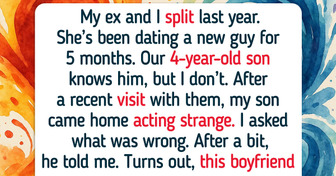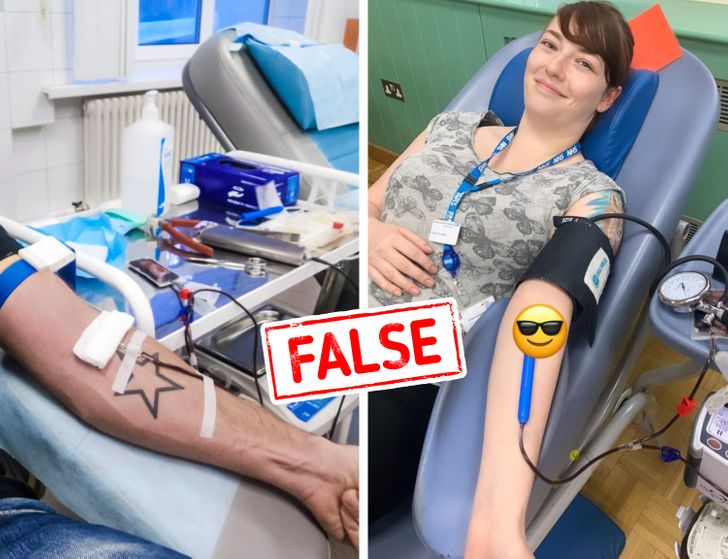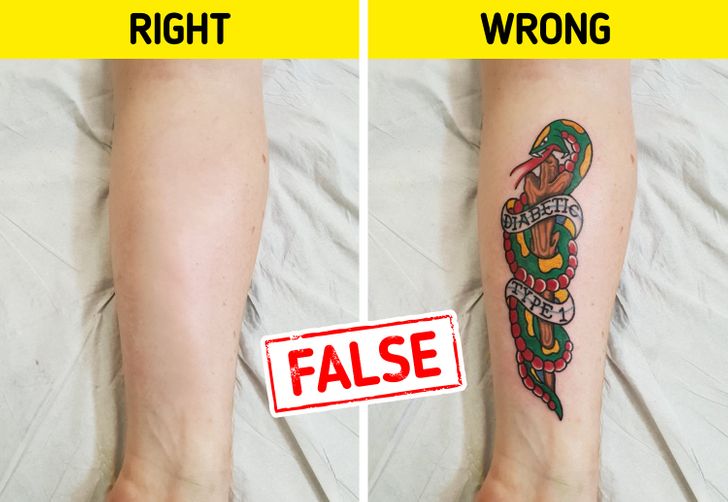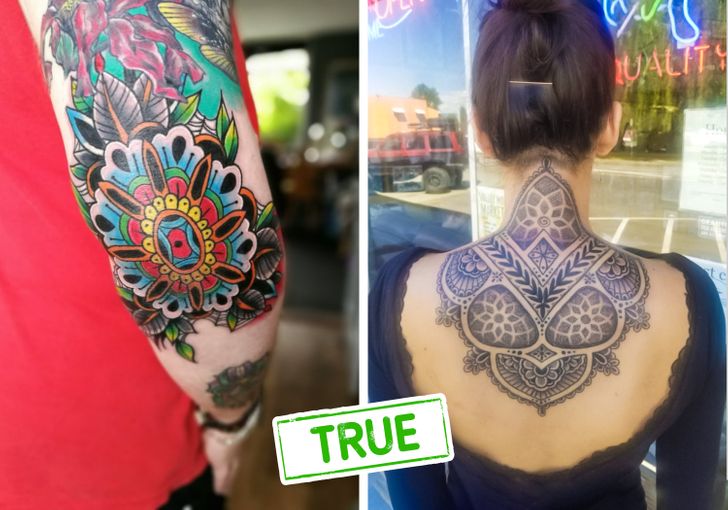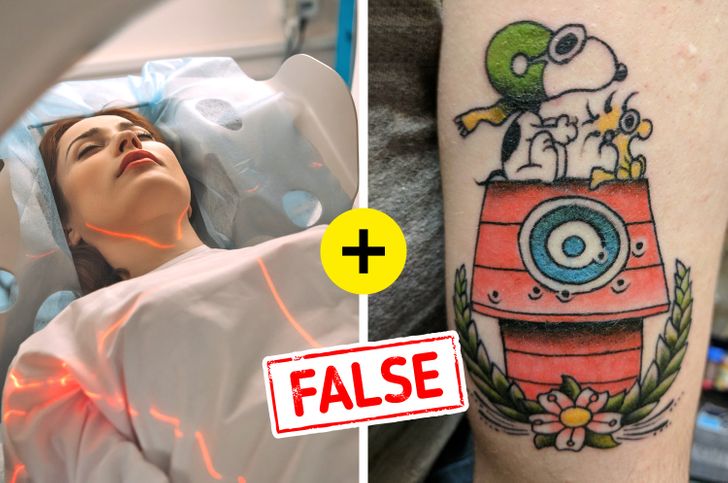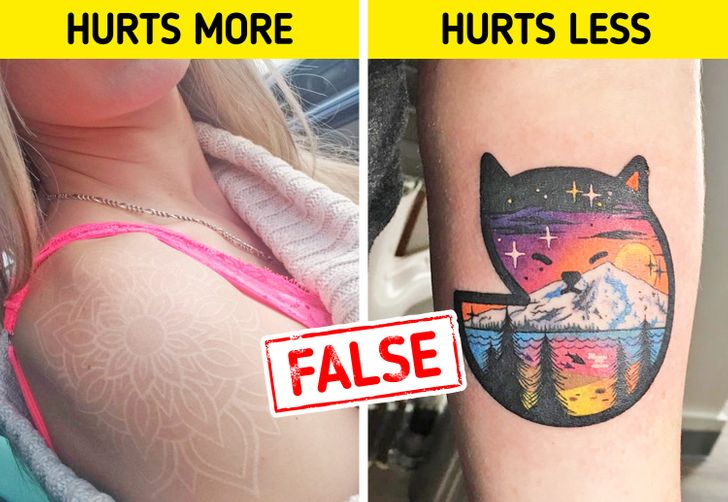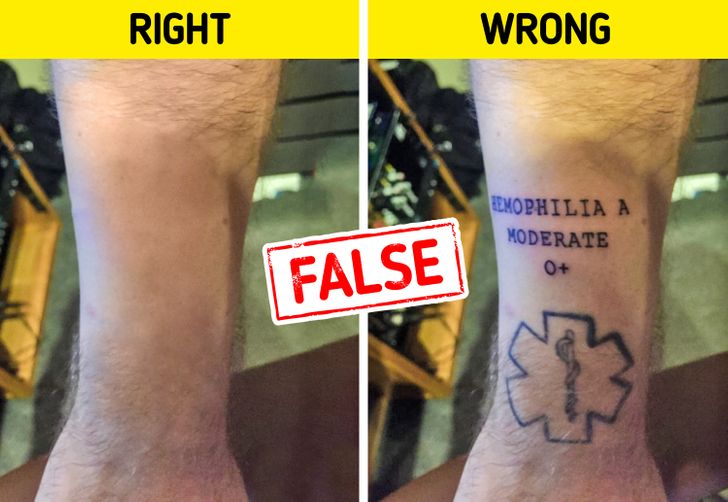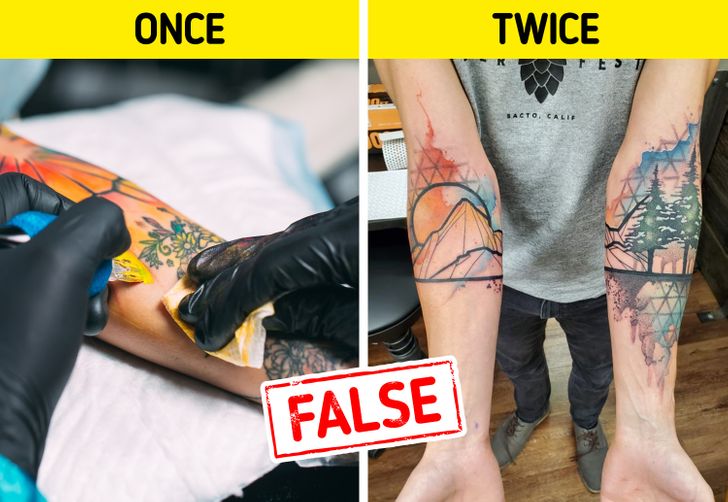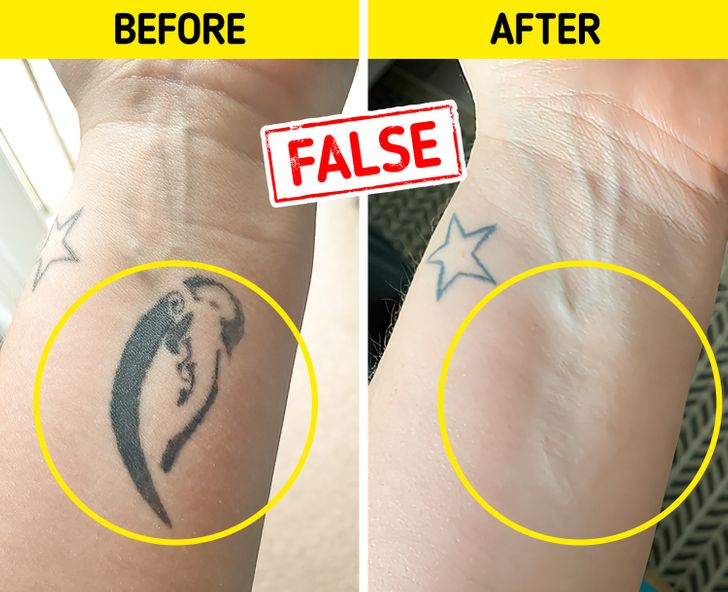Of course you CAN get rid of a tattoo.. But, trust me...... It hurts A LOT!!!
We’re Shedding Some Light on 12 Misconceptions About Tattoos
We know that tattoos are quite fashionable and more and more people are deciding to get their skin adorned with them. But the world of tattoos still raises many questions — most of them being myths. There are many people out there wondering if just anyone can get tattoed or if they fade over time. Some people even think that there are colors that hurt more when getting inked than others.
Bright Side decided to carry out some research online to know more about these common tattoo myths and we found out that most of the time, they’re just that — myths. So we debunked a few of them and found out the reasoning behind the ones that turned out to be true!
1. You can’t donate blood if you have a tattoo.
You’ve probably heard multiple times that people who have tattoos can’t donate blood at all. Of course, that’s nothing but a myth, or at least, it’s not entirely true. They can donate blood if they meet all the requirements to become a donor.
Since tattoos are made using a needle that goes all the way to the dermis (a deep layer of skin), if it’s not done properly, it can lead to blood infections. However, once a period of time to rule out a blood infection has passed (which could last at least 6 months after the tattoo was first done, but it all depends on the country and the medical institution in question), the person can then donate blood.
2. You shouldn’t get a tattoo if you’re pregnant.
There’s very little evidence, so far, proving that pregnant women put their health or their baby’s health at risk by getting a tattoo. At least, there’s no additional risk associated with getting a tattoo while pregnant. Just like non-pregnant women, future moms have to deal with the risk of blood infections due to a lack of hygiene at certain tattoo shops or poor skills.
If you decide to go and get a tattoo while pregnant, keep in mind that some doctors recommend not getting a tattoo on your back, because they think it could interfere with a potential epidural shot. Often, the needle is inserted outside of the tattooed area to avoid mixing it with the pigment.
3. People with diabetes can’t get a tattoo.
This one’s a total misunderstanding. Let’s debunk this myth! Having diabetes is no reason not to get a tattoo. The only thing that’s currently suggested by doctors is to avoid getting tattoos on the areas of the body where less blood circulates and where you usually inject insulin. That’s simply because you could hurt your skin.
But take note of the following information. The above recommendations are directed to patients who take good care of themselves. For those who have ignored their doctor’s advice or whose diabetes is completely out of hand, then yes, they could be at risk. Their skin could’ve lost some of its healing capacity or they might have a weaker immune response to infection.
4. Getting a tattoo hurts more or less depending on the place you get it.
It’s true, the pain you can feel from a tattoo depends not only on how well you can stand pain in general but also on the location of your tattoo. Usually, tattoos that hurt the most are those located in a place with very little fat. That includes, of course, any skin near a bone, or in places on your body where there are more nerve endings. If you’re concerned about this, be sure to avoid getting tattoos on your armpits, ribs, ankles, breasts, elbows, hips, neck, or face, among others.
5. People with tattoos can’t get MRIs.
The belief that a person with a tattoo can have problems getting an MRI spread because of the metallic components found in tattoo ink. But this is definitely a myth: according to a study carried out by the Max Planck Institute in Germany, the possibility of side effects are so small, it’s close to negligible. In fact, the study mentions this merely as a small number of isolated cases rather than a general rule for tattooed people.
6. White tattoos are more painful to get than others.
This idea is completely false. Normally, when you get a tattoo, the tattoo artist saves white for the end, just to make everything a bit brighter and adjust some minor details. But by this time, your skin is most likely already pretty sore from getting ink injected into your dermis for several hours. It’s hardly surprising that you’d feel more pain at that point. But this has nothing to do with the color of the ink — it just happens because your skin is already very sensitive.
7. Black ink turns blue or green with time.
This one, as it turns out, is true. But it’s more common with tattoos that were done many years ago. Actually, it’s not the ink that turns blue or green, it’s just that it gets absorbed and gradually fades away, leaving a bluish trace behind. This can happen because you’ve had the tattoo for a while or because your tattoo is located on a part of your body that has been exposed to lots of sunlight.
8. Suffering from hemophilia means you can’t get a tattoo.
This is not completely false. Hemophilia, a disease that prevents proper blood clotting, has various levels ranging from mild to severe. In cases where people suffer from mild hemophilia, the risk of bleeding complications is much lower, so they can get a tattoo with the appropriate guidance from their physician. But for patients with more serious conditions, it’s safe to assume that they shouldn’t get a tattoo in the first place.
There are also cases of people who had medium or severe hemophilia that got a tattoo without suffering from any major complications. It depends a lot on the individual case, but it’s always better to check with your doctor before making any decisions in order to avoid dangerous surprises.
9. Getting a tattoo will decrease your chances of getting more career opportunities.
Public opinion regarding tattoos has come a long way over the years. Nowadays, it’s increasingly common for people to be tattooed. Of course, that also means that it’s now widely accepted for professionals and successful people to be tattooed without having to face any issues as people did back in the ’50s.
But clearly, there are still a few professions where having tattoos can lead to discrimination. Fortunately, this is becoming a more relevant issue in public debate and there’s a constant fight to create inclusive workspaces.
10. You’ll bleed if you get a tattoo.
Because tattooing needles basically inject ink under your skin, it’s normal for a person to bleed while they’re getting a tattoo. This can make you bleed a lot, but it’s still quite far from what would be considered a dangerous blood loss. In fact, some people don’t bleed at all.
Once the tattoo is finished, there’s a period of up to 36 hours where it will seem to be leaking ink and you might see plasma and blood in it. This is totally normal. You just have to be sure to clean it and follow all the tattoo artist’s instructions. If it continues after 36 hours, you should seek medical help.
11. Tattoo artists use the same needle to ink all their clients.
This is completely false. One of the basic rules of hygiene for a proper tattoo studio is that all the material used must be brand new. Needles, gloves, and mouthpieces must be disposable and single-use only, so the artists usually open these components in front of the client to prove that they’re using the right material. Once the tattoo is done, all of this waste must go into a specific “hazardous waste” bin so that is not a danger to anyone who collects the garbage. Of course, there might be places that are not following the rules, which is why you always have to keep your eyes open and do your research!
12. You can’t get rid of a tattoo.
This is a myth since there are many tattoos that can be “erased.” The bad news is that not all of them can be removed. Despite the fact that there are more and more places that specialize in tattoo removal, this is still an area that has not been explored much. Up to this moment, it’s known that black tattoos, small ones, and those several years old are the easiest to remove. It’s also a very painful process.
Now that you know more about tattoos and we’ve cleared up some of the most popular misconceptions, you can decide whether or not you want to get a tattoo — or another one, for that matter. What other tattoo myths have you heard?
Comments
Am I old-fashioned but I really don't like tattoos on a woman??
Since you asked, will yes I think that's a bit old fashioned... I mean, I don't like the idea of getting a tattoo myself but hey, everyone can do whatever they like right?? :)
OK, but I really don't find it sick or elegant for a woman to have such big tattoos :/
Again, of course you're entitled to have an opinion that's sad, but I really believe that we cannot judge other people, whether they are elegant are sick just from their tattoos :)
Well, I guess you're right it's just my aesthetics opinion :))
Related Reads
20 People Who Found a Clever Way to Make Their Lives Easier

14 Celebrities With Surprising Educational Backgrounds

12 Wild Stories That Prove Cheating Isn’t For the Faint-Hearted

My Wife Was Sneaking Out of Bed at Night, and When I Chased Her, My Life Made a 180° Turn

I Was Exhausted From Caring for My Baby but Everyone Expected Me to Do All the Work Alone

I "Made Fun" of a Female Colleague for Being Single in Her 40s, and the Revenge Was Brutal

20 People Who Were Lucky Enough to Meet Their Perfect Partner

15 People Whose Dates Didn’t Go Quite as Planned

I Refuse to See My MIL Ever Again - Her Act Is Unforgivable

10+ of the Best Riddles That Can Leave Anyone Confused

8 Hotel Workers Reveal Creepy Situations They've Experienced on the Job

I Trusted My Ex’s New Partner With Our Son, That Was a Mistake
